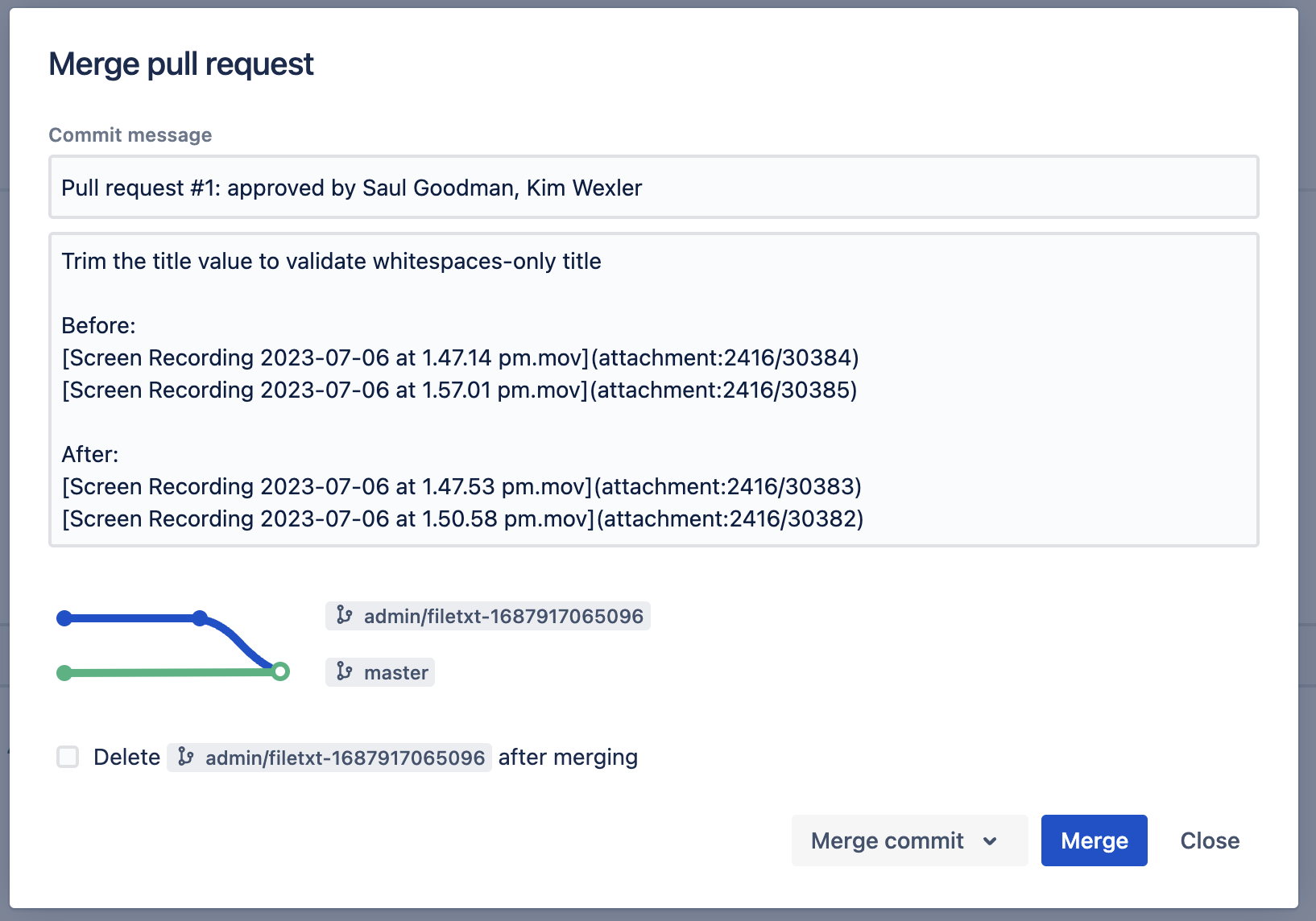Bitbucket Data Center and Server 8.12 release notes
11 July 2023
Introducing Bitbucket Data Center and Server 8.12.
This release includes a few long-awaited features designed to help you effectively manage licensed users and tailor your team’s commit messages to your organization’s needs.
Highlights include:
Find and manage licensed users with ease
SERVER DATA CENTER
On the Users page in Bitbucket Administration, you can now identify licensed users in the global list of all users from external and internal user directories. This information will allow you to make reasoned decisions on license usage and plan your future licensing costs. For example, if a licensed user has been idle for six months or more, you can find them quickly and revoke their permissions safely.
To find out if a user is licensed, check the new Licensed column. You can also use filters to find users by their license statuses, last authentication time, and directory. In the Export menu, apart from the users and user permissions options, you can now select Users (Filtered results) to export the data on the users you’ve filtered out.
Check the updates to the Users page on the following screenshot:
1 – the Licensed column
2 – the filters for the license status, last authentication time, and directory
3 – the Export menu with the new option Users (Filtered results)
We’ve also added two new JMX counters that will help you monitor in real time how many seats your Bitbucket license has:
LicenseCapacity– the maximum number of users for the existing license.LicensedUserCount– the number of licensed users for the existing license.
Create a custom template for a commit message in your pull requests
SERVER DATA CENTER
You can configure a custom template for a commit message. When you merge a pull request, the value set in the template will be used to populate the fields of the commit message in the merge modal. Commit message templates also support variables, allowing your commit messages to include details such as the source and target branch, the list of approvers, and more.
This feature helps you establish a standard practice for your pull requests. Your can add consistent, informative commit messages and create a useful Git commit history without wasting time copying and pasting the required details for each pull request.
You can configure commit message templates at both the project and repository levels. To do this:
- Navigate to Project or Repository settings > Merge strategies.
- Under Commit message template, set Template behavior to Use a custom template.
Enter the desired title and body in the Commit message fields. You can use the supported variables.
The title is mandatory.
- Select Save.
The template is applied when merging a pull request:
Learn more about the custom commit message template in pull request merge strategies
Before you upgrade to 8.12
SERVER DATA CENTER
H2 database migration requirement
The H2 database driver has been upgraded to the currently latest version 2.2.220. The upgrade has boosted data security.
If you’re upgrading to Bitbucket 8.8 and later or Mesh 1.5 and later, you’ll need to migrate the data manually to the upgraded Bitbucket or Mesh instance if:
you’re using a mirror
you’re using Bitbucket Server with a H2 database
you’ve set up Bitbucket Mesh
Get ready to upgrade
Before upgrading from an earlier version, check out our upgrade guide and upgrade matrix. Remember to renew your active software maintenance license too.
As part of our new pull request experience from version 7.0 and higher, we have created a collection of new features for you to check out on one page, Enhancements to your code review workflow.
Change log
Resolved issues in Bitbucket Server 8.12.6
Released 8 January 2024
Resolved issues in Bitbucket Server 8.12.5
Released 11 December 2023
Resolved issues in Bitbucket Server 8.12.4
Released 13 November 2023
Resolved issues in Bitbucket Server 8.12.3
Released 8 October 2023
Resolved issues in Bitbucket Server 8.12.2
Released 11 September 2023
Resolved issues in Bitbucket Server 8.12.1
Released 07 August 2023
Resolved issues in Bitbucket Server 8.12.0
Released 12 July 2023



